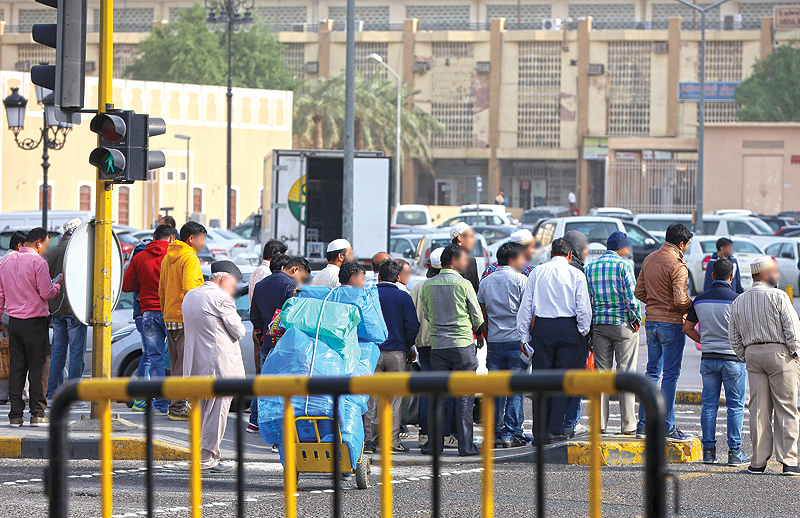Constitutional court rejects petitions against elections - MP wants citizenship issue investigated
KUWAIT: Informed sources said the government told the National Assembly it has agreed to hold a government-parliamentary meeting to decide on a legislative plan to deal with the population structure and issue several executive measures on iqama trafficking and Kuwaitization. The sources added that the two authorities are in agreement on a proposal that an expat must provide a document proving that they are leaving the country to receive their indemnity if they are terminated or resign from their jobs in the public or private sector.
The plan also envisages stopping granting licenses for some professions and dealing with some communities whose numbers have grown too much. The sources said it was agreed to hold the meeting during the month of Ramadan, and it will include agreeing on the plan and the legislations it requires to be eventually presented to the National Assembly.
The sources said the issue of imposing fees and taxes will not be discussed because it could affect citizens, and this is rejected by the parliament, adding that MPs demanded a strong government stand towards the residency (iqama) trade, which is the basis of the imbalance in the population structure. They said MPs and the government could decide on the process of correcting the population structure before the end of this year, starting with stopping employment of expats in government bodies on an ad hoc basis.
The sources said the ministries are full of hundreds of expats who are employed in this manner, which creates inflated employment in ministries and hinders the employment of Kuwaitis, especially in administrative jobs. They said the coming period will witness intervention by the Civil Service Commission and the Audit Bureau in accounting for ad hoc appointments and limiting them to extreme needs only, and this will lead to terminating scores of expats, especially since ministries are suffering from inflated spending on salaries.
Meanwhile, the constitutional court yesterday rejected two petitions against the election law and the recently concluded by-election, which means that they have been found to be in line with the constitution. The two petitions were filed by Yousef Al-Mahaish, who was a candidate in the March 16 by-elections. He contested the by-election that elected two MPs was illegal and also challenged the validity of the 1962 elections law, because it does not have any designation for the prime minister.
In other Assembly business, the financial and economic affairs committee yesterday postponed the approval of the insurance law, giving the ministry of commerce and industry time to provide details about the number of insurance companies and their field of specialization. Head of the committee MP Salah Khorshid said the draft law comprises 71 articles and that it will be approved on Sunday.
MP Safa Al-Hashem yesterday criticized the government over the alleged fake citizenship issue, claiming that the government “is scared of lawmakers who do not want to open this file”. She vowed that she will press to open the files of 62,000 Kuwaitis who allegedly obtained citizenship through illegal means. Hashem’s comments come two days after several MPs demanded that a special debate is held to hear the government position on this highly-controversial issue. The request came after only eight lawmakers supported a proposal to form a committee to investigate forged citizenships amid stiff opposition by tribal lawmakers. MP Thamer Al-Suwait said opening this issue is an attempt to divide the society.
By A Saleh and B Izzak











